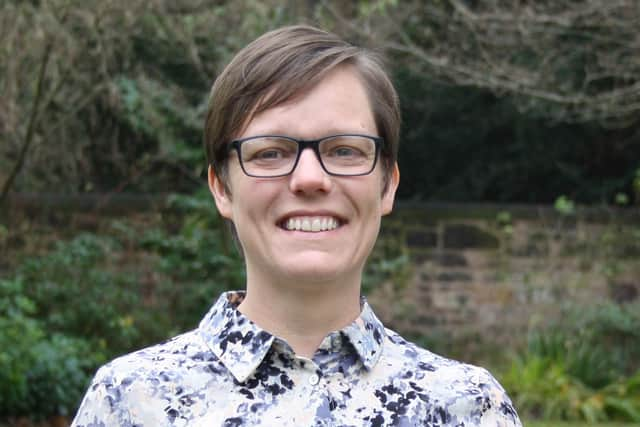We must reduce the stigma around self-harm and strengthen support - Rachel Cackett
This article contains affiliate links. We may earn a small commission on items purchased through this article, but that does not affect our editorial judgement.


Our recent report Hidden Too Long: uncovering self-harm in Scotland highlights just how vital that kind, non-judgemental response can be.
Self-harm was a growing public health challenge long before the coronavirus pandemic – recent data shows the proportion of adults in Scotland who say they have ever self-harmed doubled from three per cent in 2008-09 to seven per cent in 2018-19, while one in six (16 per cent) young people aged 16-24 said they had self-harmed at some point. As the current uncertainty continues to impact on mental health it’s even more pressing that we take action to improve understanding of self-harm, reduce stigma and strengthen support.
Advertisement
Hide AdAdvertisement
Hide AdThrough our research with people who have direct experience of self-harm, professionals working across different sectors and services, and with the wider public, we developed a clearer picture of this often hidden and misunderstood issue. We were encouraged to find that nine in ten adults in Scotland believe self-harm is a serious issue and that more should be done to address it.


But our research also found that two in five Scots would not know how to support someone close to them if they were self-harming. One in three (31 per cent) Scots said they would not feel comfortable talking to their partner or close family about self-harm, nearly two in five (39 per cent) would not feel comfortable talking to friends and nearly one in four (24 per cent) would not feel comfortable talking to a GP or another healthcare professional.
Our research with people with direct experience of self-harm found only half sought support after their most recent experience of self-harm. And our conversations with stakeholders working across frontline services highlighted many challenges that prevented professionals from delivering the compassionate, person-centred care they aspired to – whether it was a lack of training or a lack of accessible, timely and local support services to refer onto.
Despite these challenges, we also found opportunities. We believe there’s a real opportunity to strengthen the often hidden frontline of support from family, friends and community services and to empower and support health and social care, education and youth services, and the third sector to work in partnership. We’re calling for a new, dedicated national strategy to give renewed focus and leadership to meet these challenges and opportunities.
Asking for help isn’t easy. It takes courage – especially when stigma means that we may feel unsure of how others will respond. But those 272,000 conversations to our helpline are a reminder that when people reach out, we can be there to meet them at that difficult moment and let them know they’re not alone.
Let’s work together to make sure that whenever and wherever someone takes the brave step to ask for it, they’re met with the help they deserve.
Rachel Cackett, Executive Director of Samaritans Scotland. Contact Samaritans for free by phone on 116 123 or email at [email protected]. Read the full report at www.samaritans.org
Comments
Want to join the conversation? Please or to comment on this article.